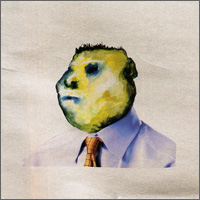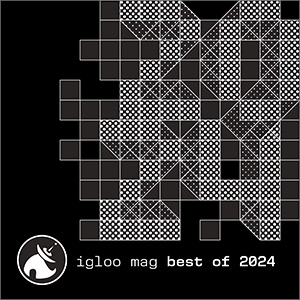
(04.23.06) Posthuman, and the Seed label, are a pair that have been difficult to
pinpoint. Posthuman, before the label had been born, burst onto the
electronica scene. The two-man group, inflated by rumours of their
pioneering of Skam’s new SMAK imprint, were talked of as the toast of the
underground electronica clubs. The Posthuman team of Richard Bevan and Joshu
Doherty, two Scottish cousins, released a series of very limited CD-Rs that
had Skam fanatics trawling the net. Yet, such hype could not be maintained;
the bubble burst. Despite great effort to find merit in them, the SMAK
releases were disappointing to say the least. Posthuman featured on Side A
of the debut release of the SMAK series with a track that did little for any
electronic music fan. It almost seemed that Skam were trying to turn
Posthuman into another Scottish partnership, Boards of Canada; attempting to
quickly fill the cousins with an acclaim that Boards earned over time. It
seemed the team had peaked far too early, now destined to wallow in the
wastes of past pomp. Or is this the case?
The cousins stepped back from the blinding spotlight that Skam had shone on
them, receding to the shadows and their own Seed label. Seed started well,
releasing some interesting IDM and electro numbers. The label began to
establish itself, releasing records from Ardisson and the Toytronic hitter
Digitonal. The cousins were back on track too, releasing the highly
acclaimed Uncertainty of the Monkey album; a record that went down well
amongst the electronica faithful. The boys have been in the wings for the
past while, taking three years to complete their latest album: The People’s
Republic.
The album marks the cousins stepping out of the shadow that Skam cast over
them. This LP is as much an evolution as it is a break from the Posthuman
sound. The People’s Republic has no one defining style, combining vast
elements of electronica with vocals and post rock. This album treads down
the darker path of IDM. The tracks have a sinister haunting feel to them, a
self-perpetuating gloom that is both melancholic and ambient. These
atmospheric renderings have a morbid beauty to them. Some tracks, like “The
Ending,” are almost like Beckettian odes to the futility of life; a sorrow
filled pointlessness of existence through a modern aural medium.
Undecipherable lyrics groan throughout the CD, creaking like a once lived in
house and adding to the desolate air of the album. Lukas Wooler, the
keyboard player from Maximo Park, features on one track; emblematic of the
post rock feel that Posthuman are promulgating on this new edged CD.
This album is by no means all doom and gloom. From the sepulchral
claustrophobia of deep beats in “Fall of Empire,” a lightness and energy
arises; the listener is resurrected from the initial loneliness and
seclusion of alienating bass by light strings and a disguised upbeat
element. The same can be said for “I Remember When,” a journey that
advocates an intrinsic dark sorrow but whose vocals lifts the listener to a
gentle, relaxed musical plateau. This is by no means just simple post rock,
like Maximo Park, but a fear filled acoustic-electronic experiment of
isolation; a sound that stresses one’s insecurities, but not in an obtrusive
or aggressive way. This is beautiful music that has a palpable sadness which
affects the listener, but not in a depressive or destructive way. This album
isn’t as such a nightmare scenario, as it is awakening.
In the month of Samuel Beckett’s centenary this album propounds what the
great playwright did; a deep, frightening fear of seclusion, the terror of
being forever alone. But, Posthuman does not leave you out in the estranging
wastelands of existentialism. The Scottish pair transports the listener to
the brink of the bleak, show them the gore of solitude and the barren, and
then inject a small piece of musical security. The pair accomplishes something
that few others have achieved, a seamless integration of guitar, vocal and
electronic. Tradition and present are meshed into a new symphony. The
spiritual vacuum we find ourselves in is not denounced, but rejoiced through
the amalgamation of all. This album is an odyssey to the depths of darkness,
a journey that results in an arrival at a new black light without shadows –taking all its elements, the sorrow, the sadness, and somehow turns them on their head. Subjectivity and objectivity melt, only a sound remains.
Posthuman have not just stepped out of the spotlight that Skam threw over
them, they have recreated the light that shines on them now; proving
themselves as more who no only succeed in experimentation, but pioneer in
it.
The Peoples Republic is out now on Seed.














![Luke’s Anger :: Ceiling Walker EP (Love Love) — [concise]](https://igloomag.com/wp/wp-content/uploads/2025/04/lukes-anger-ceiling-walker-vinyl_feat-75x75.jpg)

![Ndorfik & madebyitself :: Solos EP (People Can Listen) — [concise]](https://igloomag.com/wp/wp-content/uploads/2025/04/ndorfik-madebyitself-solos_feat-75x75.jpg)




